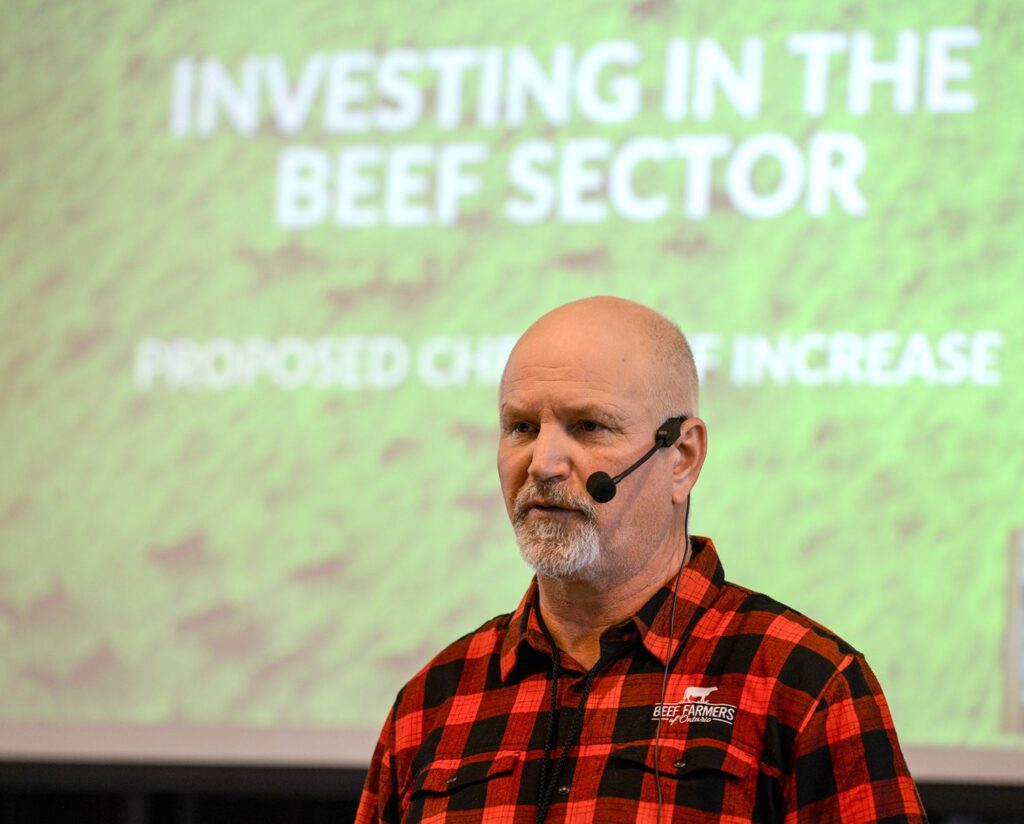BFO members agree to check-off increase

Ontario beef farmers have agreed to a check-off increase of $1.50, bringing the total check-off amount to $7.00.
Read Also


Former assistant commissioner claims harassment at Canadian Grain Commission
A former assistant chief commissioner of the Canadian Grain Commission has written a blog post claiming she was subjected to interference and harassment during her time at the agency.
Ninety-two per cent of Beef Farmers of Ontario (BFO) members voted in favour of the check-off increase at the organization’s annual meeting in Guelph Feb. 19.
“To have that support from the membership does give us a strong mandate to continue on the path we’re on,” said Craig McLaughlin, BFO president.
Why it matters: Based on expected marketings, the BFO anticipates the increase to Ontario’s check-off would generate an estimated $1.2 million in additional revenue.
Despite Ontario cow herd stabilization and a three per cent rise in heifer retention, marketing larger carcass weights but fewer animals has resulted in flat check-off transactions.
As a result of the increase, BFO programs, services, and admin funding will increase by 67 cents and 30 cents for the Ontario Beef Marketing Development Program. A 23-cent boost for the Beef Cattle Research Council, 15 cents for Ontario Cattle Feeders Association/Ontario Corn Fed Beef and seven-and-a-half cents each to the Canadian Beef Check-off Agency and public and stakeholder engagement.
It also triggers import levies on live cattle or boxed beef entering Ontario, potentially levelling the retail field for local beef sales.
“Which means the retail price of (imported) beef in the store will be higher,” McLaughlin said. “It might give them (Ontario farmers) more room to get their product in the store. “
Alex Wytenburg, a young new Feedlot Committee member from Renfrew County, said voting in favour was a no-brainer when weighed against the potential losses, especially given that cattle prices have doubled in recent years.
“To me, there are four courses of action here. You can either reduce the staff, which most people here know that the staff are phenomenal. You can reduce the programming, so which do you want to take away?” he questioned. “You can do nothing and jeopardize BFO’s future and the future of the beef industry in Ontario and the world, or you can increase the check-off.”
Wytenburg admitted he’s a relatively new face but trusts the board did its due diligence with the criteria stopping check-off from reaching parity being absolved, ensuring Ontario’s beef sector would benefit from the increase.
Jack Chaffe, BFO past-president and Canadian Cattle Association Officer-at-Large supported the motion, saying elevating Ontario’s check-off to align nationally wasn’t a spur-of-the-moment decision.
“The biggest challenge in the last six years (and) why we didn’t move on it was our relationship with Canada Beef and them not recognizing our regional marketing efforts,” explained Chaffe, who represented Ontario at the National Check-off Agency (Agency) during that time frame. He said the last two Canada Beef presidents leading up to the appointment of Eric Bienvenue made great strides in building a relationship and working with Ontario beef marketing team leads Jim Clark and John Baker.
However, Chaffe recommended that one of the four BFO executives with a deeper understanding of check-offs represent the organization to the National Check-Off Agency because the BFO business plan must be approved.
“That’s the money we bring back from National to support some of our local efforts,” he said. “Nothing against Junior board members, but … National Check-Off is a beast and tough to understand. I spent six years there, and I thought I knew a lot going in, but every year, you learn a lot more.”
He challenged the organization to negotiate a lower administration rate than the current 12.5 cents, saying he couldn’t justify that percentage of check-off dollars when the Agency runs a balanced budget with a surplus.
McLaughlin said the Agency must release a business plan and each province comments on it. Ontario’s position will be that it doesn’t require that much, especially given the increase from Ontario.
“It’s an agency to administer the funds. To get them to their appropriate location,” he said. “It’s not about an agency that needs to Empire build.”
McLaughlin said the 2025 budget would remain unchanged because the check-off increase requires regulatory hoops to be jumped through at the provincial level before financial benefits would be realized, likely at the end of December or early January 2026.
“We have to stick to the current budget being proposed, but it will mean more money in the future,” he said.
Source: Farmtario.com

